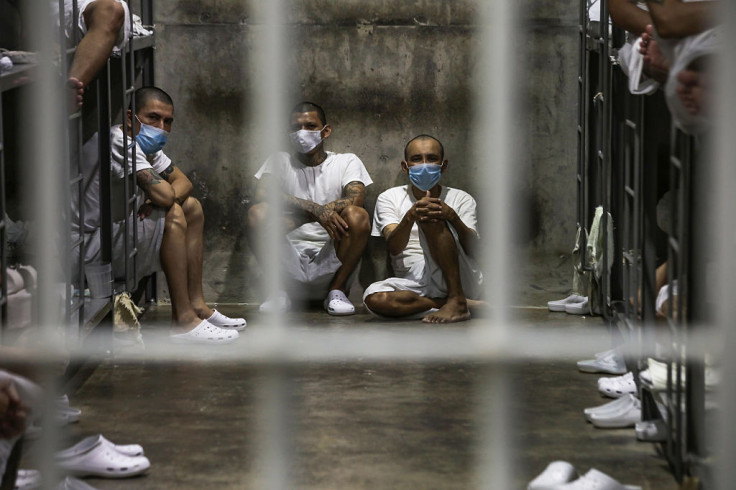
Dozens of Venezuelans held at El Salvador's high-security Terrorism Confinement Center (CECOT) appeared in a video this week shouting "freedom" and using hand signals to call for help.
The footage, published by One America News Network (OANN), showed detainees calling out from behind bars as U.S. political figures, including former congressman Matt Gaetz and Representative Anna Paulina Luna, toured the facility on May 9.
The cells included towering stacks of bunkbeds seen in another part of the prison, with one of the cells in the wing housing Venezuelans whole held a towel with a cross drawn onto it draped across the bars.
WHY WERE THESE KILLERS IN AMERICA?
— One America News (@OANN) May 13, 2025
Matt Gaetz visited CECOT in El Salvador to see firsthand where some of the world’s most dangerous MS-13 gang members are being held—men who have each murdered dozens and were deported after repeatedly entering the U.S.
In this exclusive OAN… pic.twitter.com/yAqHoBoLUy
Trump invoked the 1798 Alien Enemies Act on March 15 to rapidly deport alleged Venezuelan gang members. Although a federal judge issued an order blocking further deportations under the AEA on March 18, two flights carrying 261 deportees—including 137 Venezuelans—proceeded to El Salvador before the ruling took effect.
The detainees, now housed in CECOT, have been held without access to phones, lawyers, or legal recourse, as Reuters reports. Many families who deny the gang affiliations identified their loved ones in the video. Angie Rios, a U.S. citizen, said she recognized her husband Jesus Rios, 22, pleading for freedom in both English and Spanish. "Confused, desperate, angry, hopeful, frustrated," she said, describing her reaction.
Maria Alejandra Falcon told the outlet she saw her son, Yolfran Escobar, 25, clinging to his cell bars. "It is a pain so great it feels like they are tearing out my soul," she said. Paola Moreno, whose brother Maikel is also detained, said, "He is not a criminal, he doesn't deserve this."
The U.S. Department of Homeland Security did not comment on the video footage, and the White House did not immediately respond to requests for comment by Reuters.
The Trump administration asked the Supreme Court on Tuesday to limit the deportation block to the Alien Enemies Act, arguing that Title 8 deportations—those processed under standard immigration law—should be allowed to proceed.
Title 8 includes more legal protections, such as hearings and access to counsel. Critics, including human rights groups, argue that many of the Venezuelans were targeted without formal charges, based on tattoos or unverified allegations.
© 2025 Latin Times. All rights reserved. Do not reproduce without permission.






